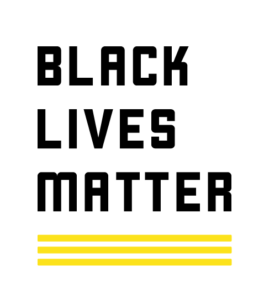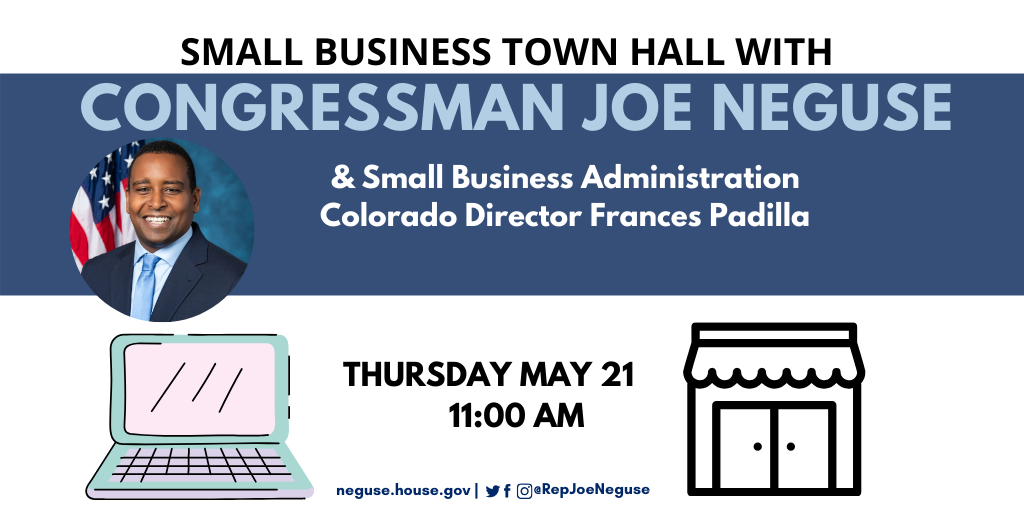Colorado’s State-Wide Mask Order
 Yesterday evening, Colorado Governor, Jared Polis, announced a state-wide mask order directing Colorado residents to wear a mask or face covering while in indoor public spaces. Citing the rise in COVID-19 cases in the state, Jared said, “…Masks are the ticket to the Colorado we love and a critical part of supporting Colorado’s economy and prosperity. The best way to support Colorado workers and businesses right now is to wear a mask.”
Yesterday evening, Colorado Governor, Jared Polis, announced a state-wide mask order directing Colorado residents to wear a mask or face covering while in indoor public spaces. Citing the rise in COVID-19 cases in the state, Jared said, “…Masks are the ticket to the Colorado we love and a critical part of supporting Colorado’s economy and prosperity. The best way to support Colorado workers and businesses right now is to wear a mask.”
Vacation in the time of Covid
 I’ve written a few times about the importance of taking vacation time and I had the opportunity to take most of the week off a few weeks ago. It was good but not great (and different than I expected). In the past when I’ve gone away on a trip, I’ve been successful at truly unplugging. But there’s no getting away during Covid. I imagine I’m not alone in this but I find that when I’m at home and taking time off it’s difficult to completely disconnect. That was true the other week – I was only able to do a fair job of avoiding work and almost felt guilty about setting an out of office on my email (I nearly forgot to do it, in fact – perhaps my subconscious pushing back on my taking the time in the first place).
I’ve written a few times about the importance of taking vacation time and I had the opportunity to take most of the week off a few weeks ago. It was good but not great (and different than I expected). In the past when I’ve gone away on a trip, I’ve been successful at truly unplugging. But there’s no getting away during Covid. I imagine I’m not alone in this but I find that when I’m at home and taking time off it’s difficult to completely disconnect. That was true the other week – I was only able to do a fair job of avoiding work and almost felt guilty about setting an out of office on my email (I nearly forgot to do it, in fact – perhaps my subconscious pushing back on my taking the time in the first place).
The Wall Street Journal recently reported that fewer people are taking time off this year. Americans already have challenges with getting away and unplugging – apparently Covid is making that worse. I also suspect that when time off is taken, it’s less relaxing and less of a real break (I’m projecting here, clearly, but I have heard stories from others who have tried to get some time away during the pandemic that recounted similar challenges).
I don’t have the answer but the reason I’ve written about it a couple of times is that I think it’s a real issue. We need to think about ways other than just creating long weekends for ourselves and our employees to take time away and be disengaged from work. Maybe others won’t struggle the way that I have with taking “staycation” but I suspect that many will.
I think this is something we should be paying attention to. People are already stressed and stretched – finding ways to recharge is especially important now. If anyone has any ideas or strategies for themselves or their teams, I’d love to hear about them in comments.
Board Diversity / Network Diversity
 Fred Wilson’s recent post on diversity was thought-provoking on several levels and got me thinking not just about board composition but more broadly about the question of networks and how relying too heavily on existing networks can limit the diversity of those networks. There are many things that we (meaning the tech and venture industries, but I’m also shining this light on myself here) need to do to better promote and support equity and diversity in our work. To some extent at the core of this challenge is that many of us have limited diversity in our own personal and professional networks (see this interesting take from Rick Klau of Google on this topic). Fred’s post helped clarify one of the real challenges of limited networks because in large part the search for outside board members is an exercise about the network of one’s current board members’ networks. Companies typically look for new board directors on their own (meaning they typically don’t engage a search firm) and the result is that most new board member are either directly connected to their existing board or management team or one degree away. That’s incredibly limiting, even for a group (tech entrepreneurs and investors) that considers itself very networked.
Fred Wilson’s recent post on diversity was thought-provoking on several levels and got me thinking not just about board composition but more broadly about the question of networks and how relying too heavily on existing networks can limit the diversity of those networks. There are many things that we (meaning the tech and venture industries, but I’m also shining this light on myself here) need to do to better promote and support equity and diversity in our work. To some extent at the core of this challenge is that many of us have limited diversity in our own personal and professional networks (see this interesting take from Rick Klau of Google on this topic). Fred’s post helped clarify one of the real challenges of limited networks because in large part the search for outside board members is an exercise about the network of one’s current board members’ networks. Companies typically look for new board directors on their own (meaning they typically don’t engage a search firm) and the result is that most new board member are either directly connected to their existing board or management team or one degree away. That’s incredibly limiting, even for a group (tech entrepreneurs and investors) that considers itself very networked.
One of the things that’s really hit home with me over the past weeks as I’ve reflected on why I have done such a poor job promoting diversity across my work (and venture more broadly has) is that I/we need to do a better job of proactively building networks that include more diversity. I recognize that this is hard – it’s something that I’ve been consciously trying to do for years and I know from first hand experience that it takes both time and effort. On the board level, supporting organizations such as The Board List, himforher, and The Valiance Funding Network are good ways to jump-start the process. But conscious and deliberate effort is required to both recognize that many of us have limited networks when it comes to diversity and that we can do more to expand those networks. There’s a change in mindset that needs to accompany this and I’d encourage us to embrace it rather than ignore our network shortcomings or rationalize them away (there are tons of interesting people from all sorts of backgrounds out there – it actually doesn’t take that much work to find them and start connecting).
Fred also talks about the challenge of opening up new seats in the board room. The basic issue is absolutely correct – board rooms are too static. In economics, there’s a term known as business dynamism. Ian Hathaway and Robert E. Litan, in a report for the Brookings Institution describe business dynamism as “the process by which firms continually are born, fail, expand, and contract, as some jobs are created, others are destroyed, and others still are turned over.” Importantly they go on to note that “[r]esearch has firmly established that this dynamic process is vital to productivity and sustained economic growth.” Almost like a living organism, economies stay healthy by constantly building and changing. It’s a balancing act between growth and consolidating market power and new businesses and new ideas nipping at the heels of incumbents. The US has historically had relatively high dynamism and it is one of the factors that has been credited for America’s relative advantage in net job creation and the overall health of our economy.
Contrast this with the behavior of corporate boards which tend to be extremely and stubbornly static. They start with the founder and initial investors and typically when new investors come in, more investors are added to the board (rarely replacing an existing investor, more typically just adding to the number of people around the board table – for whatever reason, people are loathe to get off of boards once they’re on). We know from research that having more than three venture investors on your board is correlated with lower outcomes. Fred’s point in his post about creating board turnover is both helpful in terms of thinking about opening up spots for other diverse candidates but also in terms of enhancing the overall health of an organization by bringing in new ideas and new thinking. Bringing dynamism to the board level would be beneficial on both counts.
I took a look at this across my own boards (I’m on 14 company boards at the moment – subject for a different post about the optimal number of board seats…). My average tenure is over 5 years. I have several boards where I’ve been on the board for more than 10 years. Most of the board’s I’m on change their composition rarely outside of adding a new investor (I wasn’t able to quantify exactly but board’s I’m on add or remove a board member on average about every 4 years). It’s clearly a problem and one with both an easy solution (introduce more prescribed board turn-over) that’s at the same time very hard (a CEO I work with suggested this idea and when I volunteered to be the first person off the board was told that no, that wasn’t what they were thinking).
Still, I’d push us as an industry to think about how these two dynamics intersect. We know from studies that diversity at the management and board levels leads to better business outcomes. We know in other contexts, dynamism is helpful to systems. Perhaps we can and should bring those two ideas together.
Functional Versus Strategic Meetings on Zoom
 Like a lot of people, I’m stuck on Zoom for most of the day, although I’ve tried to mix in some regular phone call meetings – even when Zoom would be available – just to give me a break from time to time. I’ve found that Zoom works reasonably well for functional meetings and for information sharing / webinar-style meetings. When I say “functional meetings”, I mean executive team meetings, check-ins, and board meetings – ones that are fairly informational and have a relatively set agenda, but likely the kind of meetings that you have on a regular basis (weekly or monthly).
Like a lot of people, I’m stuck on Zoom for most of the day, although I’ve tried to mix in some regular phone call meetings – even when Zoom would be available – just to give me a break from time to time. I’ve found that Zoom works reasonably well for functional meetings and for information sharing / webinar-style meetings. When I say “functional meetings”, I mean executive team meetings, check-ins, and board meetings – ones that are fairly informational and have a relatively set agenda, but likely the kind of meetings that you have on a regular basis (weekly or monthly).
However, when I’ve held meetings that were more strategic in nature – such as open-ended planning meetings and those to talk about general strategy – they haven’t translated to Zoom very well. These meetings tend to run longer and I’ve struggled with video conferencing as the medium because it feels like there’s something missing – the body language in the room is hard to read and it seems easy to lose people’s attention, even from the very start. I find it’s even easy for me to lose attention in this setting and stay fully engaged. It’s harder to follow the more open ended conversations that “strategy” meetings lend themselves to and it’s just harder to stay engaged. This isn’t “Zoom fatigue” – that’s real and I definitely feel it many days – but something else.
I’m wondering if other people have noticed this and if anyone has any ideas for ways to improve that dynamic. We’re all stuck on Zoom for the foreseeable future, which had been working great for more functional meetings. But as we at Foundry have moved from tactical meetings related to Covid/PPP/our weekly Monday meetings to planning meetings (portfolio reviews and in particular our quarterly off-sites that we’ve been doing since the start of Foundry), they’re just not translating as well to Zoom. Bring remote has had many advantages in terms of productivity (no travel, no driving to/from work, lots of focused time) but there are plenty of draw-backs and this is a big one in my world.
If you have ideas and suggestions for ways to counter these issues, please weigh in – I’d love to hear your thoughts.
Make Juneteenth Meaningful
 I’ve always been aware of Juneteenth but I’ve never done anything in particular to mark it. I’m sorry about that and it’s not something I’m proud of. For me and clearly for a lot of other people this is changing. I hope it can be a part of what perhaps – finally – will be a movement to change the way people of color, and specifically black people, are treated in our country.
I’ve always been aware of Juneteenth but I’ve never done anything in particular to mark it. I’m sorry about that and it’s not something I’m proud of. For me and clearly for a lot of other people this is changing. I hope it can be a part of what perhaps – finally – will be a movement to change the way people of color, and specifically black people, are treated in our country.
I found this reflection on Juneteenth from Daria Hall particularly poignant. It’s short but worth reading if you have a moment. There are many other authentic voices online today talking about what the holiday means to them who are worth listening to as well. “There are deep parallels between the delay of democracy and emancipation reaching Black people in 1865 and the Black experience today, ” as Hall writes in her piece.
I don’t know what you’re doing today. Actually, maybe I do – I’ve watched too many people on Twitter and other platforms fall all over themselves to show how suddenly woke they are to something that has been celebrated in one way or another for almost 150 years. I hope you’ll make today about more than a personal social media moment.
I don’t care what you do today, but I hope it will be meaningful. Juneteenth isn’t just about a day in the calendar. It’s about the actions we take the other 364 days of the year to create meaningful change in our society. If we’ve learned anything new over the past few weeks since George Floyd’s murder, its that this change is too long in coming. And long overdue.
A Few Days
 This last weekend, I took the weekend off along with a half-day on Thursday and a full day on Friday. I called it a mini-vacation and it was fantastic. I turned off email and (for the most part) social media and enjoyed some digital free time. Like many of you, I’ve been running hard the past few months. Long days, working weekends, etc. Spring break was skipped and we’re running headlong into summer. At some point we all need to take a moment, ideally a few, and recharge. A week off right now felt like a step too far, so I decided to start with a smaller step. It was a good reminder both of how needed it was as well as about the importance of taking what you can.
This last weekend, I took the weekend off along with a half-day on Thursday and a full day on Friday. I called it a mini-vacation and it was fantastic. I turned off email and (for the most part) social media and enjoyed some digital free time. Like many of you, I’ve been running hard the past few months. Long days, working weekends, etc. Spring break was skipped and we’re running headlong into summer. At some point we all need to take a moment, ideally a few, and recharge. A week off right now felt like a step too far, so I decided to start with a smaller step. It was a good reminder both of how needed it was as well as about the importance of taking what you can.
I was talking about this with a group of CEOs on Monday when I was back. We had a good conversation not just about the importance of their each getting a break, but also about how to encourage people throughout their organizations to recharge. As part of this discussion we also talked about summer planning and how they’re approaching the summer schedule in general and encouraging employees to get some vacation time in, even if the lock-downs prevent them from venturing far from home. I was encouraged that a number had already communicated to their teams a handful of different workflows for the summer. Some were experimenting with Fridays off for a month or 6 weeks. Others were instituting half day Fridays for the full summer. Most were talking about digital free weekend days (in some cases full weekends) where Slack and email were strongly discouraged across the company (meaning that everyone was offline at the same time and where this was a shared expectation across the entire org – days to unplug, which used to be what we used weekends for without having to give/get permission).
These pauses are so important for both mental and physical health. Even if we can’t take traditional vacations with travel right now, there are opportunities to get outside and hike, go camping (even if it’s in your backyard) to break the routine and monotony of the past couple of months. I’d encourage you to think about it for yourself and for your team or organization.
Enough
 I’m not entirely sure where to begin, so let me start with stating what should be obvious:
I’m not entirely sure where to begin, so let me start with stating what should be obvious:
Black Lives Matter
That we can’t seem to agree on this in America is 2020 makes me some kind of mixture of sad, angry, screaming, crying, depressed. But how I feel and what I think isn’t important. In fact as a white person, especially a white man, my “feelings” are and should be beside the point. It’s the experience of black people that matters and they are experiencing racism daily. I don’t know what it’s like to have to think twice before going out for a jog. Or getting into my car. Or taking a stroll in a park. I get to take that for granted because of the color of my skin and the privilege it brings.
From my vantage point there was a moment in time about a decade ago when it felt like racism was for the most part going away (the talk of a “post-racial” society). It never was and my perspective was from the lily white perch of my privileged existence. Had I even bothered to ask my friends of color I would have known this to be the case. I know many other white friends who felt this way as well. We were not only wrong, it allowed us to lull ourselves into a sense of complacency.
Donald Trump is a racist. But he is a symptom of our problem, not the cause of it. He is incompetent. He takes every opportunity to divide us as a country and he openly and clearly encourages racists among us (can we stop saying “dog whistle” – there’s nothing subtle about his words or his actions – he’s a bull horn to racists). He must be voted out in November. But getting rid of Donald Trump doesn’t get rid of racism and more fundamental changes need to be made to our policing system, law enforcement more broadly (the prosecutors, jurys and others who have proven to be powerless to act in the face of police officers time and time again turning to murder as an outlet for their anger or incompetence), our criminal justice system and the systemic incarceration of black men. Our society has become more and more unequal and less and less compassionate and caring. We’ve lost ourselves as a nation.
I have some ideas on how to be a part of the solution. Sitting on the sidelines is not an option (and I believe doing so makes you a part of the problem – the cops in Minneapolis who stood by while their colleague murdered an innocent black man last week were not bystanders, they were accessories to his murder). But I think that’s for another post. This one isn’t about telling people what to do or how to feel.
It’s to say simply that Black Lives Matter.
To the many who are suffering and hurting, I’m sorry. I won’t pretend to know how you’re feeling. But I do know that we can and must make meaningful changes. Enough.
Uncertainty
 I’ve been reading a lot recently about the relationship between uncertainty and mental health. Specifically, it’s well-documented that uncertainty drives significant anxiety. This is logical on many levels but what I didn’t realize is just how deep-seated it is. In a time when there’s an incredible amount of uncertainty, I think this is something that everyone needs to take a step back and understand. Even people who haven’t lost jobs, don’t have loved ones impacted by COVID, and whose kids are doing well in online school are affected.
I’ve been reading a lot recently about the relationship between uncertainty and mental health. Specifically, it’s well-documented that uncertainty drives significant anxiety. This is logical on many levels but what I didn’t realize is just how deep-seated it is. In a time when there’s an incredible amount of uncertainty, I think this is something that everyone needs to take a step back and understand. Even people who haven’t lost jobs, don’t have loved ones impacted by COVID, and whose kids are doing well in online school are affected.
Uncertainty provokes a kind of “fight or flight” response in the human brain. As we try to escape the idea of uncertainty, we analyze a situation in an attempt to make ourselves feel better. In other words, we worry in order to eliminate uncertainty and reassure ourselves. Frequent worry can lead to anxiety or depression and some individuals are more susceptible to it than others. It turns out that if you’re particularly vulnerable to uncertainty, you’ll have a heightened reaction to it in the same way someone who is allergic to a bee sting will react to that. For some people, it’s just a nuisance and for others, it’s more threatening. People who don’t tolerate uncertainty well fall prey to needing constant reassurance, procrastination, double-checking everything, and needing to do everything themselves all of which exacerbates the initial problem and leads to more worry and anxiety.
The future is always uncertain and we cannot prepare for every possible outcome so tolerating some level of uncertainty in our lives is essential. Establishing healthy routines (eating, sleeping, activity), staying present, and avoiding isolation are all good tactics for maintaining your mental health. Another is to focus on what can be done versus all of the unknowns. Obviously in this time of incredible uncertainty (work, life, kids, summer plans, camp, school in the fall, family, loved ones that are vulnerable, did I already have Covid, etc.) this becomes even more important.
I’ve been trying to think about how to apply these ideas to work and to life and looking for places where I can help reduce uncertainty for myself and for others. There are not a lot of things right now that we have real control over but this has led to decisions such as the one I posted recently about Foundry keeping its office closed until September. It’s a small thing but it allows everyone at Foundry to make plans and at least have more certainty in this one thing.
I’d encourage you to consider this for your own life. Especially for those readers (CEOs, managers, etc.) who are in a position to make seemly small moves that could remove uncertainty in the lives of those around them that could actually be very meaningful.
Working Remotely – Extending WFH
 A few weeks ago, I posted that Foundry had made the decision to remain out of the office until at least June 1st. We’re fortunate that we’re in the position to work effectively this way – because of the kind of work we do and the way our company is set up (not to mention that we’re a team of 14). While we miss seeing each other, we felt it was safer to keep everyone at home.
A few weeks ago, I posted that Foundry had made the decision to remain out of the office until at least June 1st. We’re fortunate that we’re in the position to work effectively this way – because of the kind of work we do and the way our company is set up (not to mention that we’re a team of 14). While we miss seeing each other, we felt it was safer to keep everyone at home.
I’d actually been thinking for months before the crisis about the changing nature of work and had intended to write a post titled something to the effect of, The Future of Work Is Remote – a trend that I thought would be accelerated when some famous remote tech companies such as Automatic (a parent company of WordPress) went public and the world could see just how productive and effective a fully remote workforce could be (wish I had written that – would have been a great reference point right now). In our own portfolio, we have a few companies that are primarily remote – TeamSnap and Help Scout come to mind, as examples. There are many across the portfolio and almost all have some remote workers or at least a satellite office. Most of these “remote” companies also have a main office of some kind that at least a subset of their employees comes to. But often that office is laid out more like a co-working space than a traditional office, allowing for more flexibility for how it is used. One of the main advantages of remote work is that you can hire the best employee for any role, not just the employee that happens to be in your town. This was a huge advantage when the job market tightened and talent for specific positions got tight and we saw companies who were more flexible about remote work be able to take advantage of individual contributors across the country and across the world.
Of course, now many people are talking about working remotely and how the experience of forced WFH because of Covid will have lasting effects on how companies organize their physical relationship to their employees. Fred Wilson from Union Square wrote an interesting post about the future of work last week, which was particularly thoughtful.
For Foundry, we have decided that we are not going to reopen the office until at least Labor Day (that date could move out but it won’t move up). We concluded that this was the safest thing to do and felt like we wanted to eliminate some uncertainty for our staff (more on the topic of uncertainty soon – in a time of uncertainty around just about everything in our lives, providing some amount of certainty, even about something as simple as when employees will asked to come back to the office, can make a big difference). We also felt that this extended period would give us the chance to lean into work at home. As one of our portfolio CEOs said on a recent call, “You can either become world-class in working from home or world-class in creating a safe work environment. It feels like the better thing is to focus on the former.” I totally agree with this sentiment and we felt unprepared to create an office environment that would be fully safe for our staff. But we did know we had the structures in place to be very effective working from home and to continue that for a long period. To be sure of that we did a few things to make sure that everyone was well set up, such as giving everyone a budget to make sure their home office environment was as productive as possible and paying for internet access. Most importantly, we’ve put in place business structures, communication plans, and a regular cadence of stand-ups that allow us to stay connected (in some ways, more effectively than when we were all in the office together).
Obviously, not all businesses have this ability and many businesses need some or all of their employees in an office either to access specialized equipment and machinery or because of the nature of their business. But for those businesses that are able, we would encourage you to consider setting a date for returning to the office that is well in the future to provide some certainty for your staff and to keep the pressure off of the system as states start to open up.
Join Me Thursday for a Business Town Hall with Rep Joe Neguse
Sorry for the short notice but I’ve been working with Rep Joe Neguse (CO 2) to put together a Business Town Hall this Thursday, May 21st at 11:00MT.
Joe’s been a real champion of small business (in particular minority and women-owned businesses) and I’m really glad that he’s agreed to do this.
Joe has been one of the most available Congressmen during his time in office holding over 24 town hall events in his first year in Congress alone.
Frances Padilla from the Small Business Administration Colorado will offer some thoughts on the call as well (she heads the SBA in CO and is super thoughtful). It’s a great chance to connect with him about the both the CO response to COVID-19 as well as the federal programs that have been put in place.


